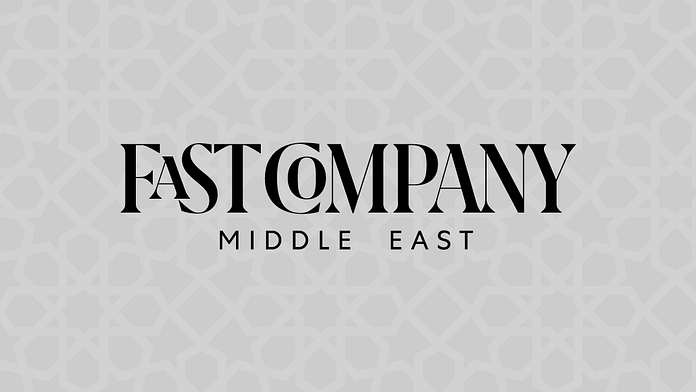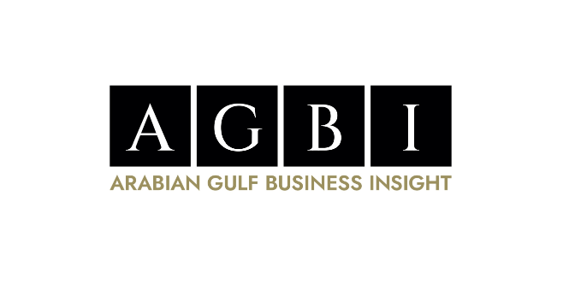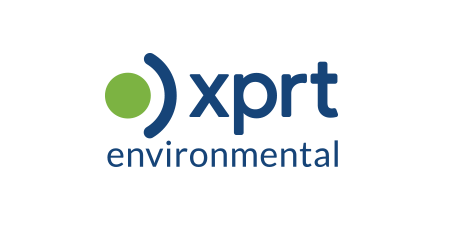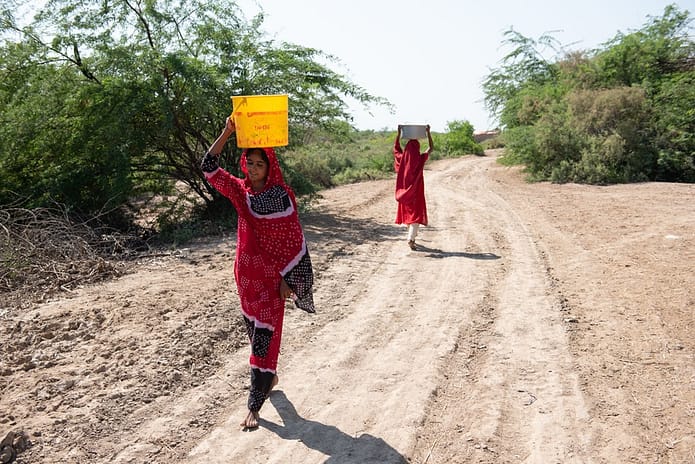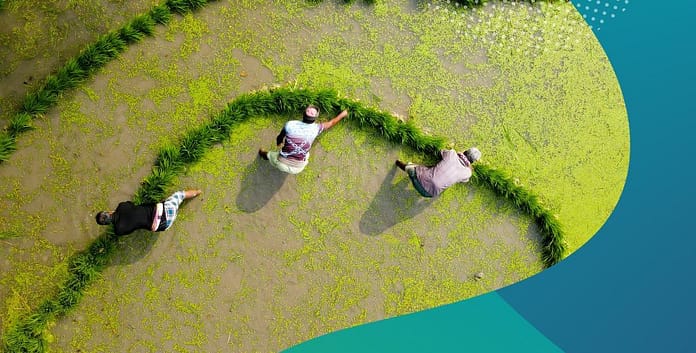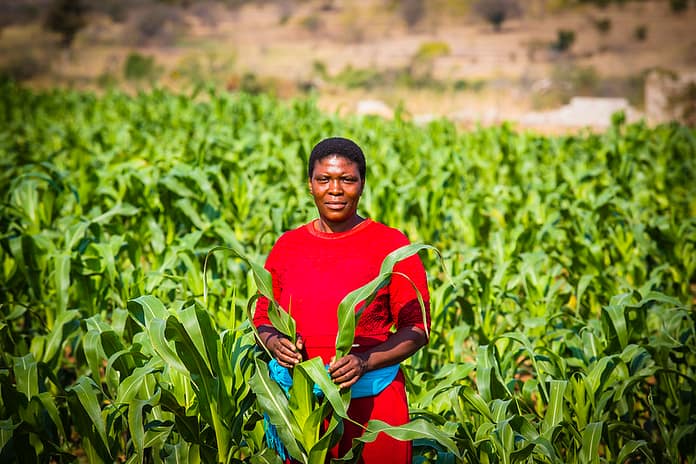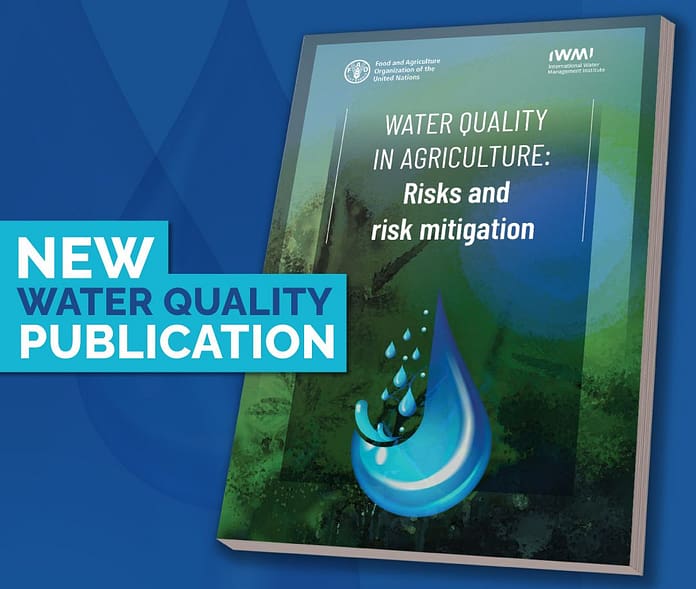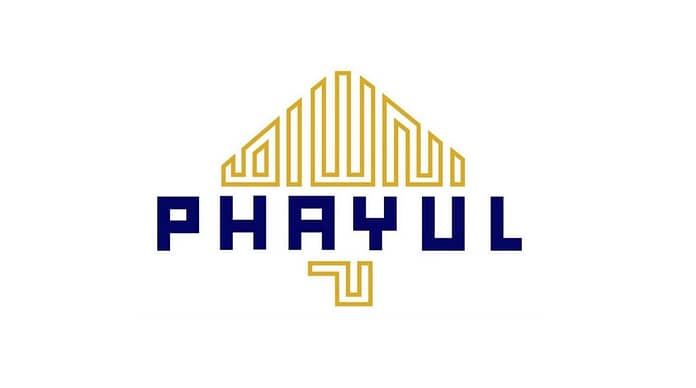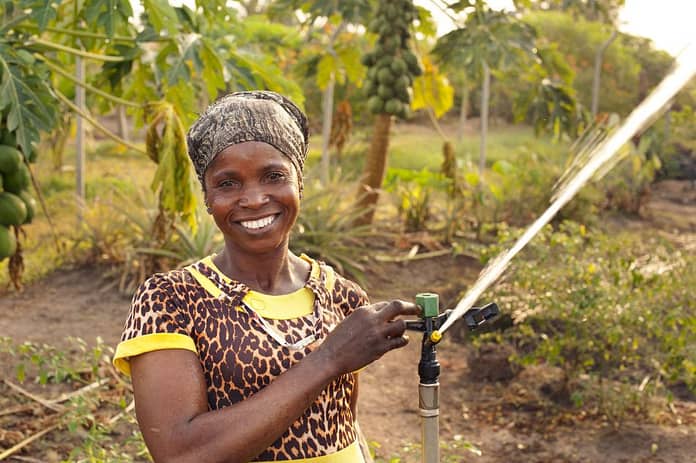International experts met to discuss proposed pathways to improved agricultural water management (AWM) in Africa during a webinar. A key conclusion was that improving operational costs and financing could spur investment in sustainable AWM practices and technologies.
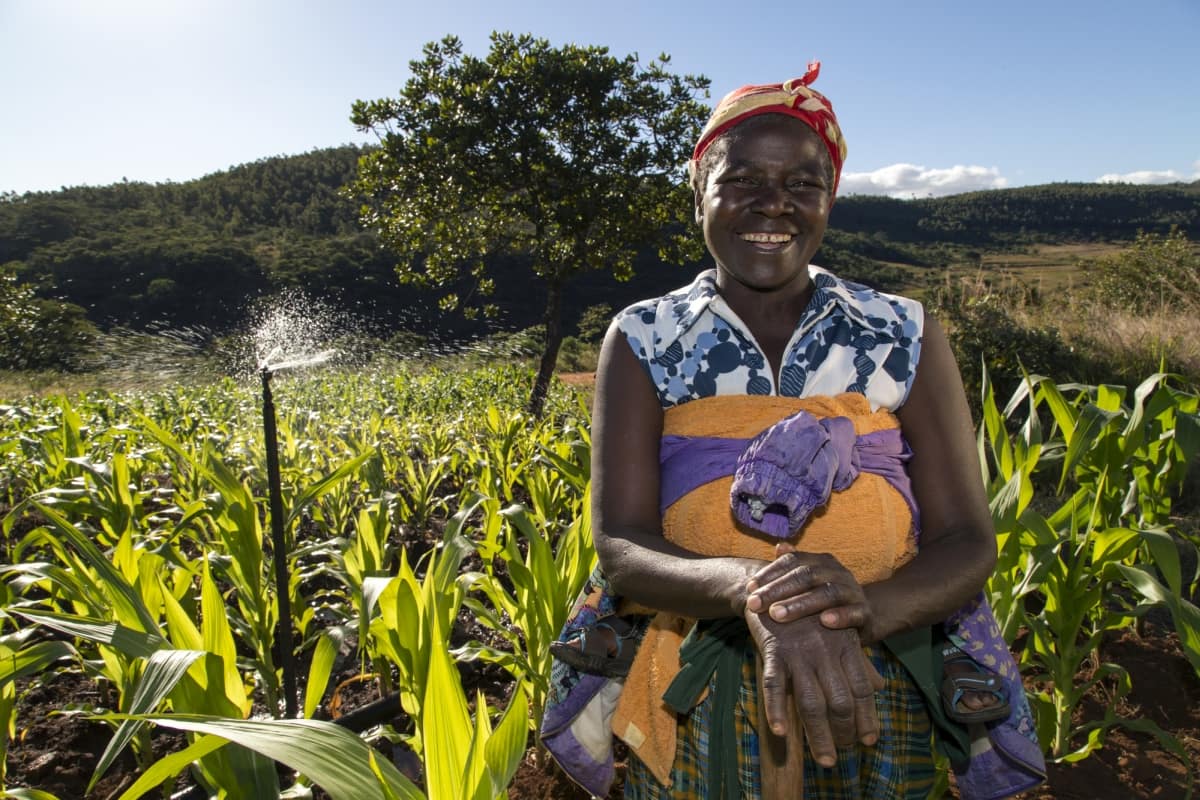
The webinar was jointly organized by the African Union (AU), the International Water Management Institute (IWMI), the Food and Agriculture Organization of the United Nations (FAO) and The World Bank. The event brought together 300 policymakers, donors, farmer organization representatives and other stakeholders from 55 countries, with the aim of accelerating agricultural transformation guided by the AU’s Framework for Irrigation Development and Agricultural Water Management (IDAWM).
Published in June 2020, the framework consolidates the most relevant approaches to and priority actions for AWM. It also serves as a blueprint to align and harmonize national and regional water management policies. Learning from and building on previous AWM implementation efforts, the framework proposes investment in four parallel pathways. These are:
- Pathway 1: Improved water control and watershed management in rain-fed farming
- Pathway 2: Farmer-led irrigation development
- Pathway 3: Irrigation scheme development and modernization
- Pathway 4: Unconventional water use for irrigation (including wastewater treatment, recycling and reuse).
Advancing agricultural transformation
In her opening remarks, H.E. Josefa Sacko, Commissioner for Rural Economy and Agriculture, African Union Commission, said, “It is hoped that the framework will inspire and galvanize interest at scale in irrigation development and agricultural water management as we advance agricultural transformation through resources intensification on the continent.”
However, the framework comes at a critical time. Across Africa, countries face declining agricultural productivity, high food import bills and increased hunger. The additional challenges of rapid population growth and changing weather patterns have underlined the need for AWM to boost food security, mitigate climate-related shocks and stimulate economic growth.
The importance of resilient food systems has become even more apparent in a year dominated by the Covid-19 pandemic, and the restrictions on movement introduced to contain it. In some areas, lockdowns have disrupted agricultural supply chains, depressed food demand and prevented workers from reaching fields and factories.
Although the full extent of the impact of Covid-19 remains unclear, the pandemic is already pushing up hunger and could erase years of progress on poverty reduction. This was highlighted by Mark Lundell, the World Bank’s Regional Director, Sustainable Development Eastern and Southern Africa, who called the framework an example of new thinking. “We believe it can deliver big wins on inclusive economic growth and the sustainable use of land and water, which is especially important in the short- and long-term recovery of impacts from Covid-19 and climate change,” he said.
Achieving zero hunger
On World Food Day, the intent and ambition of the IDAWM framework has a particular resonance. This is in the context not only of immediate food needs in many countries but also the longer-term goal of zero hunger (SDG 2), which is unachievable without a vibrant water management sector (SDG 6).
As Abebe Haile-Gabriel, FAO Assistant Director General and Regional Representative for Africa, noted: “The theme of this year’s World Food Day is ‘Grow, Nourish, Sustain. Together’. It underscores both the ongoing nature of the challenge to create and maintain resilient, robust food systems and the necessary collaborative approach. In line with the theme, the webinar’s discussion of improving agricultural irrigation and water management through the IDAWM framework in Africa is happening at the right moment to gain momentum and ramp up the commitment for sustainable agricultural intensification by AU member states.”
His remarks were echoed by Mark Smith, Director General of IWMI, who commended the IDAWM framework for its continent-level scope. “AWM has immense potential for agricultural productivity. However, it continues to receive limited attention in national and international discourses on sustainable development. The framework represents a major step towards elevating the priority of AWM on African political agendas. In addition, it strategically focuses investment efforts by all 55 AU member states in pursuit of the 2014 Malabo Declaration targets of reduced poverty and enhanced food security as well as achievement of the SDGs.”
The webinar concluded with a strong commitment to build on the momentum generated by the event to drive mainstreaming and implementation of the framework.



